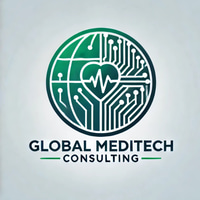The Future of Digital Health: Key Trends in 2025 and Beyond
5/8/20243 min read


Digital health innovations are transforming patient care and medical operations.
Digital health is evolving rapidly, with innovations in artificial intelligence, telemedicine, and wearable technology shaping the future of patient care. As healthcare systems worldwide adapt to new challenges, digital solutions are driving efficiency, improving accessibility, and enhancing patient outcomes. This article explores key trends expected to define digital health in 2025 and beyond.
1. AI and Predictive Analytics in Healthcare
AI-powered analytics are revolutionizing medical decision-making by predicting diseases, personalizing treatments, and automating administrative tasks.
🔹 AI-driven diagnostics improve accuracy in detecting conditions like cancer and heart disease.
🔹 Predictive analytics help forecast patient deterioration and optimize hospital resource allocation.
🔹 AI chatbots enhance patient engagement by answering medical queries in real time.
Example: Google's DeepMind AI is already demonstrating remarkable success in diagnosing eye diseases and predicting acute kidney injuries.


AI-powered predictive analytics are reshaping the future of healthcare.
2. Expansion of Telehealth Services
The demand for telehealth continues to surge, offering virtual consultations, remote monitoring, and digital therapeutics.
🔹 Virtual doctor visits reduce wait times and increase access to care, particularly in rural areas.
🔹 Remote patient monitoring (RPM) enables doctors to track chronic conditions using wearable technology.
🔹 AI-powered symptom checkers assist patients in determining whether they need medical attention.
Example: The UK’s NHS and US healthcare providers are increasingly integrating telehealth platforms for routine consultations and post-operative care.


Telehealth improves patient access to care while reducing hospital burdens.
3. The Rise of Digital Therapeutics (DTx)
Digital therapeutics are evidence-based software interventions that complement or replace traditional medical treatments.
🔹 Used for mental health, diabetes management, and chronic pain relief
🔹 AI-driven behavioral coaching helps patients adhere to treatment plans
🔹 Prescription-based apps approved by regulatory bodies, such as the FDA and MHRA, are gaining traction
Example: UK-based Sleepio, an AI-powered sleep therapy app, has been approved by the NHS as an alternative to medication for insomnia.


Telehealth improves patient access to care while reducing hospital burdens.Digital therapeutics provide innovative treatment options without medication.
4. Interoperability and Healthcare Data Integration
Seamless data exchange across healthcare systems is crucial for improving patient care. Interoperability ensures that different healthcare providers can access and share patient records efficiently.
🔹 FHIR (Fast Healthcare Interoperability Resources) is becoming the global standard for healthcare data exchange.
🔹 Blockchain technology enhances security and privacy in health data sharing.
🔹 Unified health records allow patients to access their complete medical history across different providers.
Example: The US is pushing for interoperability regulations under the 21st Century Cures Act, ensuring greater access to electronic health information.


Interoperability in healthcare improves efficiency and patient outcomes.
5. Personalized and Preventive Healthcare
Advancements in genomics, AI, and wearable devices are shifting healthcare from reactive to preventive.
🔹 Wearable health tech (e.g., smartwatches, glucose monitors) continuously tracks vital signs.
🔹 AI-driven lifestyle recommendations help prevent diseases before they develop.
🔹 Genomics and precision medicine allow for personalized drug treatments.
Example: Companies like 23andMe are using genetic data to predict disease risks and recommend lifestyle adjustments.


Wearable technology enables real-time health monitoring for preventive care.
The future of digital health is driven by AI, telemedicine, data integration, and personalized care. As we move into 2025 and beyond, these technologies will continue to enhance patient experiences, improve healthcare efficiency, and transform how medical professionals deliver care. Healthcare organizations that embrace digital transformation will be best positioned to navigate the evolving landscape.
At GlobalMediTech Consulting, we help healthcare organizations stay ahead of digital health trends by implementing AI-driven analytics, telehealth solutions, system integration, and regulatory compliance strategies. As digital transformation accelerates, we ensure seamless adoption of emerging technologies to enhance patient care and operational efficiency. Contact us today to future-proof your healthcare solutions.
